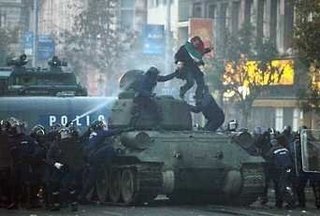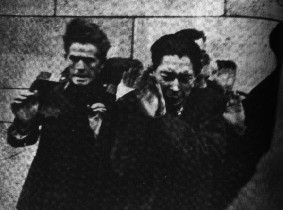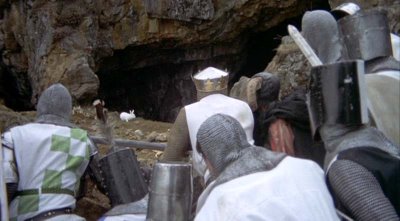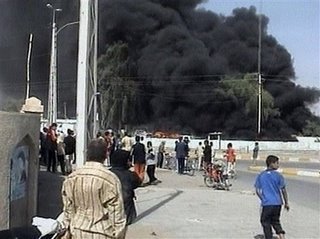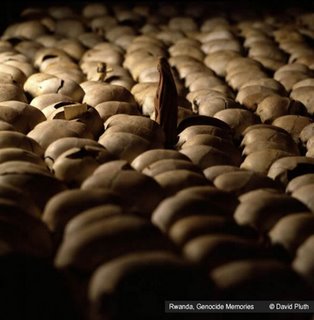
French historical memory tends to be even more selective than that of other European countries with the exception, possibly, of Russia and Serbia. (I am stretching the adjective European as far as it will go.) In other countries different memory lapses occur on different political sides and, somehow, one can put evidence together.
In France there tends to be an agreement as to the national memory lapse, inspired all too often by the state-controlled media (though the newspapers, not controlled by the state, gleefully join in).
Those old enough will recall the appearance of Marcel Ophüls’s “Le Chagrin et la pitié” in 1969, the first attempt to look at the truth of the Nazi occupation of France, the reality behind the carefully constructed myths. There was an explosion of officially orchestrated wrath. The film was banned from the state-controlled TV and various cinemas that displayed an inclination to screen it received unambiguous warnings.
Eventually the film was shown to great acclaim, in France and elsewhere, and a shocked discussion followed, especially among the younger generation, who felt, rightly, that they had been brought up on lies.
For all of that, the national amnesia over France in World War II has not yet been overcome to any great extent. (Come to think of it, Eric Rohmer’s recent film that attempted to show the truth about the French Revolution, "L'Anglaise et le duc", was attacked ferociously by
les biens pensants. Do not criticize our revolution.
The biggest memory hole is French decolonization, in particular the two ferocious and catastrophic colonial wars: Vietnam and Algeria whose after-effects are still with us.
Of the two, Algeria is more important and more shocking in many ways, as well as more harmful still. When the Algerian war started on All Saints’ Day 1954, the French government or military were not very worried. There had been other uprisings and rebellions, all easily put down.
This one turned out to be different. The war lasted till 1962, caused massive losses on both sides, was the cause of terrible cruelty on both sides, ended in effective defeat for France and came close to provoking a civil war in that country. As a result of it President de Gaulle became the western politician with the largest number of assassination attempts against him.
This is not a posting about the Algerian War of Independence as such but on some particular aspects of it. As a background, one ought to point out that the French authorities seriously underestimated the FLN (Front de Libération Nationale), its ability to mobilize forces and its roots in the Algerian population; they also seriously underestimated the hatred for the French that was still seething in Algeria as a result of French behaviour there at the end of World War II and immediately after it; finally, they seriously underestimated the whole process of decolonization and its popularity in the Third World in the fifties and sixties. (By and large, the British did not make that mistake, though they made others, notably in India and Palestine.)
Decolonization had been taken up by the Soviet Union as a cause, which, in turn created many problems in the newly independent countries. The Soviet interference in the Middle East and North Africa made a difficult situation much worse, leading to what amounts to an impasse now.
Soviet support meant, however, that there was one more aspect to the Algerian War of Independence or as the French saw it, the struggle for
l'Algérie Française, that the French seriously underestimated. Curiously enough, this is something the West continues to underestimate: the strength of concentrated propaganda.
Of course, the Soviet Union was good for something else as well: arms and ammunition. And thereby hangs an interesting tale, one that I heard today when I attended a talk given by Mathilde von Bülow, a research student from the University of Nottingham who is working on West Germany’s role and involvement in the Algerian War.

By 1955 the newly formed Armée de Libération Nationale in Algeria found that it was heavily outmanned and outgunned by the French army. By 1957 there were 450,000 French soldiers in Algeria and that does not include police and security officers or, one presumes, the ill-fated
harkis, the Algerians who fought for the French. The ALN could raise 20,000 mujaheddin who did not have the most up-to-date arms exactly.
So, having exhausted supplies in Algeria, they went shopping, in the first place to other Arab countries that could supply rather old arms, from World War II dumps. The key person in this was Gamal Nasser and his support for the FLN was the main reason why the French were considerably more anxious than the British to go after him when the Suez Canal was nationalized. (But that’s for another posting.)

Then the FLN expanded to Western Europe and the French became seriously alarmed while remaining convinced that all they had to do was to asphyxiate the supply of arms and the FLN uprising would fold. The ALN, they reasoned would be physically weakened without large arms supplies and would lose a certain psychological advantage if their international support was seen to dry up.
West Germany’s role became crucial, as Ms von Bülow argued. Although the country’s own arms industry had been dismantled and forbidden by the allies; although the post –1955 laws forbade the sale abroad of
Kriegswaffen (weapons of war) the actual situation was not unpropitious to the FLN.
For one thing, Germany resumed production of
Relativwaffen (light weaponry, not primarily intended for warfare but for hunting and sports) and this could even be exported. While this was not heavy war weaponry, it was exactly what the Algerian insurrectionists wanted. Still, the production was slow and inadequate.
On the other hand, there were other countries that produced arms and these could be traded and transported through Germany. It seems that the 1955 abrogation of the occupation status left something of a legal void for some months, during which various temporary measures were introduced with the inevitable loopholes. In this environment, arms dealers such as Otto Schlüter or Georg Puchert could flourish.
The FLN moved in and established a network of contacts though, to be fair, they did so in Belgium, Switzerland and other countries as well, not to mention their growing dealings with East European countries like Czechoslovakia and Yugoslavia. Many of the agents were, it seems, Arabs of other countries or Algerians with passports from other Arab countries. Thus, some of the more respectable firms, such as Telefunken were not always aware who the ultimate client was. For, inevitably, arms was not the only thing the FLN was after – radio transmitters and receivers were desperately wanted.
Ms von Bülow’s account of what follows lived up to the astonishing hype she was given. It seems that her academic researches have uncovered some completely new material and, even when the material is old, she has managed to put it together to show some fascinating new insights. I can’t wait for the book.
Well now, in September 1956 the offices of Otto Schlüter in Hamburg were bombed with casualties, though he escaped unharmed. In June 1957 there was a bomb in his car, which killed his mother. Herr Schlüter was a well-known arms dealer.
In October 1958 the West German cargo vessel,
Atlas, was bombed in Hamburg harbour. In November of that year there was an attempted assassination of the FLN representative in Bonn. In March 1959 a car bomb killed the arms dealer Georg Puchert in Frankfurt. In December of that year a parcel bomb maimed an FLN negotiator in Frankfurt. In January 1960 the West German cargo vessel
Marmara was bombed at sea. In September of that year Frankfurt merchant Helmuth Müller survived two attempted assassinations. In October 1960 a car bomb maimed Wilhelm Beissner in Munich. In June 1961 Walter Heck, another arms dealer, was assassinated in Karlsruhe.
These were the successful or more or less successful events in West Germany. There were others that had been prevented or foiled such as the assassination of the arms dealer Ernst Wilhelm Springer in Hamburg in the autumn of 1961.

Understandably, there was uproar in the West German media and parliament with demands for a full investigation and punishment of the perpetrators. A group, calling itself La Main Rouge or Die Rote Hand apparently claimed responsibility. This criminal organization purported to come from the various rather unsavoury clubs and gambling dens of the Maghreb, particularly Algeria and Tunisia.
At first, the group excited some interest. A film was made about them and even the
Daily Mail interviewed a supposed member of it, one Durieux, who bore an uncanny resemblance to the young Napoleon.
However, it became clear very soon and has since been confirmed through hints and admissions in memoirs that the group, if it existed, was not much more than a convenient smokescreen, though there seems to be some indication that there was such an organization of the
pieds noirs, of the French Algerians actually in that country and some of the OAS, the subsequent terrorist organization in France grew partially out of that (and partially out of the many disgruntled army officers).
So who was responsible for all these covert actions (as well as for others in North Africa, Belgium, Paris, Rome and Switzerland)? There can be little doubt – they were carried out by
Service Action, the covert operations division of the
Service de Documentation Extérieure et de Contre-Espionage (the French Foreign Intelligence Service). There can be even less doubt that these actions were empowered by governmental directives from 1955 onwards. It seems unlikely that successive presidents, including Charles de Gaulle could have been ignorant that this was going on.
A good deal of the talk and subsequent discussion revolved round the roots of this particular French activity and why the intelligence service thought that this would be effective in the war against the FLN. But what interested me was the fact that such operations were being carried out in a supposedly friendly country at a time when ever closer links were being forged between the two and the Paris-Bonn (now Paris-Berlin) axis was being created.
It seems that the French intelligence service was reasonably certain that they could get away with all this. In itself, that is quite surprising, as other covert activity, by the KGB and, sometimes, the Stasi was punished whenever possible with strong protests going to the governments in question. Yet, not once did Chancellor Konrad Adenauer protest despite the pressure that the foreign ministry, assorted parliamentarians and public opinion tried to exert.
It would appear that, at the height of the Cold War, with West Germany slowly being readmitted into the “family of western nations”, Adenauer did not want to sabotage the new partnership that was developing between the two countries. Whereas, Soviet and East German covert activity was seen for what it was: illegal undermining of West German sovereignty, as well as criminal activity.

In the end, none of this helped the French. Covert activity in the West drove the FLN further east and they established themselves as clients of the Communist states: Czechoslovakia, Yugoslavia, even China, under the benign gaze of the Soviet Union. Not only could not those deals not be prevented, they were not even known in time. French intelligence lost its advantage once the negotiations moved behind the Iron Curtain and to the Arab states.
Worse, as the story became known or, at least, suspected, the French lost the propaganda war. To be fair, they were already losing it because of the FLN and the ALN being seen as fighters for independence from wicked colonialists. The French argument that Algeria was an intrinsic part of France held little attraction outside the country and the French Algerians themselves.
The stories of sabotage and assassinations as well as those of mass executions and torture turned that famous world opinion against them. (And who can tell how much Soviet manipulation was responsible for that?) In the process the truth about the FLN and its appalling behaviour was lost as was the fact that the Germans who were assassinated and on whom attempts were made, were arms dealers who were probably bending, if not breaking their own laws and ignoring international agreements. As a result of French covert activity and skilled propaganda by Algerians and by many on the left in France, they became martyrs to official French brutality.
COMMENT THREAD
 Despite the febrile predictions of a rebellion in the government ranks, the vote on the Iraq debate, at 298 to 273 in favour of the government, was certainly not close enough to worry Blair.
Despite the febrile predictions of a rebellion in the government ranks, the vote on the Iraq debate, at 298 to 273 in favour of the government, was certainly not close enough to worry Blair. For entirely tactical reasons, the Conservative Party threw its lot in with Plaid Cymru and the Scottish National Party (SNP). Shadow foreign secretary William Hague (pictured) put the obvious but irrelevant point. "None of us can credibly argue that there will not be lessons to be learnt of huge importance for this government and future governments, and ministers should have no hesitation in acknowledging that," he proclaimed.
For entirely tactical reasons, the Conservative Party threw its lot in with Plaid Cymru and the Scottish National Party (SNP). Shadow foreign secretary William Hague (pictured) put the obvious but irrelevant point. "None of us can credibly argue that there will not be lessons to be learnt of huge importance for this government and future governments, and ministers should have no hesitation in acknowledging that," he proclaimed. "This is not the time…" said foreign secretary Margaret Beckett, her objection that such an inquiry could undermine troops' morale, leaving SNP leader Alex Salmond to disagree. "The idea is to restore parliamentary accountability over a war which has obviously gone badly wrong," he declared. "We are stuck in a bloody quagmire in Iraq with no end in sight."
"This is not the time…" said foreign secretary Margaret Beckett, her objection that such an inquiry could undermine troops' morale, leaving SNP leader Alex Salmond to disagree. "The idea is to restore parliamentary accountability over a war which has obviously gone badly wrong," he declared. "We are stuck in a bloody quagmire in Iraq with no end in sight."

